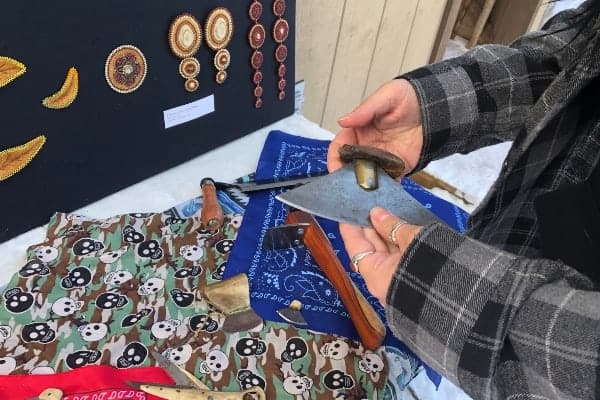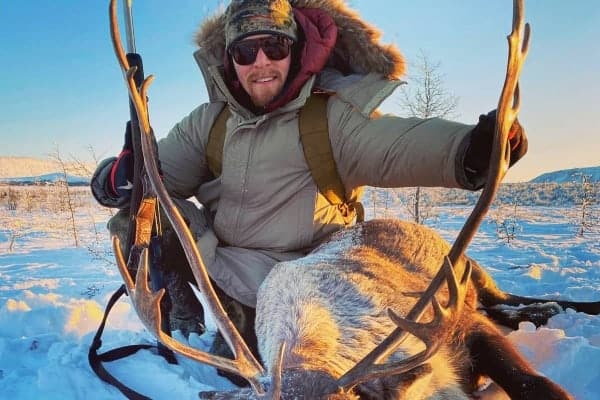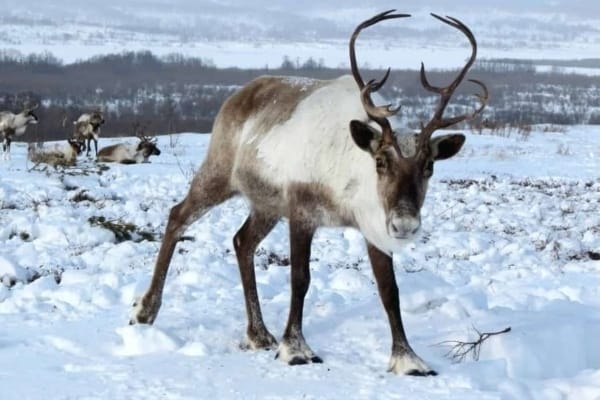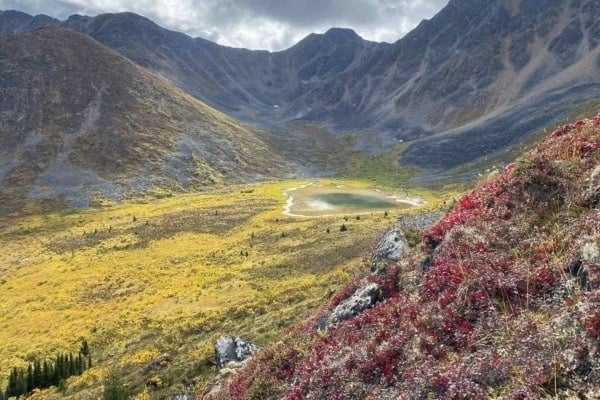Being Caribou kicks off Yukon Film Society’s (YFS) Kitchen Party on October 24 at the Yukon Arts Centre. The Kitchen Party is a month-long celebration of Canadian cinema and media art for YFS’s 30th anniversary. The film exemplifies the struggle environmentalists face against the interests of oil companies.
Karsten Heuer and Leanne Allison, wildlife biologist and filmmaker, respectively, share a deep appreciation for the fragility and beauty of the natural world. They set out on the journey of a lifetime to follow a herd of caribou, on foot, through the Yukon wilderness, and across the border to their Alaskan calving grounds. The intimacy with nature that this adventure affords them is inspiring in its rarity. Their dream is to document the overwhelming beauty and spectacle of this mass migration, and convince those who want to extract oil from the caribou’s ancient habitat that it would destroy something wonderful and important.
Released in 2005, Being Caribou begins with footage of George H.W. Bush, and George W. Bush, raving at crowds of Americans, insisting that job creation and development are far more important than the protection of a remote locale (or any animal or human being that might call that place home).
A delightful and jarring contrast occurs as the film transports us from this stuffed-shirt podium in Washington, DC, to the rough-hewn landscape of Old Crow. And from two people who are emotionally detached from the value of the natural world, to a mild-mannered Gwitchin fellow, Randall Tetlichi, who elegantly divulges the spiritual and practical importance that the porcupine caribou herd has provided to his people for thousands of years.
The documentary invites executives and politicians to make a leap of imagination: one necessary to form a visceral emotional connection to something they have only experienced theoretically, as a formula for making money.
George W. Bush is featured throughout the film, but not exactly in person. The couple tote a Bush action figure doll with them, which they include in many shots, and frequently hold one-sided dialogues with. This doll definitely adds a weird but important element to this film. It says, in a strange poetic way, that if Bush could vividly experience this journey with them, in the flesh, he could not be exempt from the intrinsic spiritual value it instils.
The adventurers meet with physical and mental challenges they hadn’t imagined, and beauty and purity beyond the realm of ordinary human life. This mysterious land is home to not only thousands of caribou, but arctic foxes, wolverines, grizzly bears, and an ancient clan of human beings whose traditional way of life is being threatened.
A place that is perceived as barren and lifeless is anything but, and this fact is humbly demonstrated by our filmmakers. What they accomplish is a feat in every sense of the word. These two wise and congenial voices might fall on some deaf ears, but perhaps not yours.
This National Film Board of Canada documentary and audience favourite at the 2006 Available Light Film Festival screens at noon on Friday October 24 at the Yukon Arts Centre. Admission is by donation.




